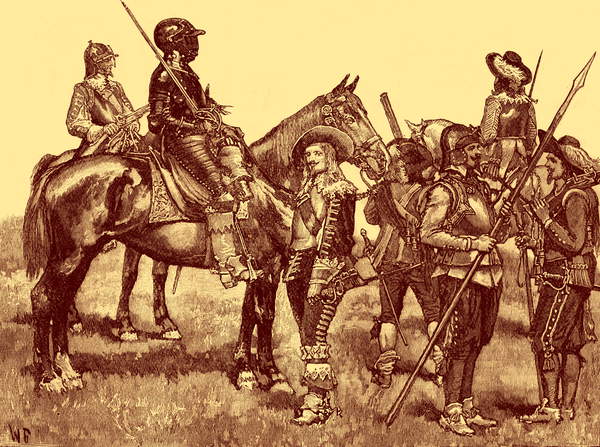“I go from a corruptible world to an incorruptible one, where there is peace, all possible peace.” With these words in 1649 Charles I Stuart, king of England and Scotland, greeted the world before being beheaded during the English revolution.
The English Civil War is a generic term for a series of civil wars between Royalists and Parliamentarians in England and Wales from 1642 to 1652. Part of the wider 1639 to 1653 Wars of the Three Kingdoms, they consist of the First English Civil War, the Second English Civil War, and the Third English Civil War. The latter is now usually known as the Anglo-Scottish war (1650–1652), since most of the fighting took place in Scotland, while the Royalists consisted almost entirely of Scots Covenanters and English exiles, with no significant rising in England.
While the conflicts in the three kingdoms of England and Wales, Scotland and Ireland had similarities, each had their own specific issues and objectives. The First English Civil War was fought primarily over the correct balance of power between Parliament and Charles I. It ended in June 1646 with Royalist defeat and the king in custody.
However, victory exposed Parliamentarian divisions over the nature of the political settlement. The vast majority went to war in 1642 to assert Parliament’s right to participate in government, not abolish the monarchy, which meant Charles’ refusal to make concessions led to a stalemate. Concern over the political influence of radicals within the New Model Army like Oliver Cromwell led to an alliance between moderate Parliamentarians and Royalists, supported by the Covenanters. Royalist defeat in the 1648 Second English Civil War resulted in the Execution of Charles I in January 1649, and establishment of the Commonwealth of England.
In 1650, Charles II was crowned king of Scotland, in return for agreeing to create a Presbyterian church in both England and Scotland. The subsequent Anglo-Scottish war ended with Parliamentarian victory at the Worcester on 3 September 1651. Both Ireland and Scotland were incorporated into the Commonwealth, and Britain became a unitary state until the Stuart Restoration in 1660.




There are no reviews yet.